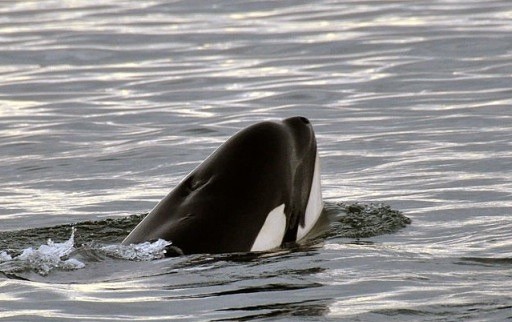
Stories of orcas sinking yachts — most recently a 50-foot vessel off the coast of Morocco — have fascinated humans recently, with some cheering on what they view as the killer whales' rebellion against humans in their habitat.
According to one scientist, however, the behavior has a far more innocuous explanation: the orcas just want to play.
"Reports from Spain have indicated that the orcas in that small population are primarily targeting the rudders of sailboats and other small vessels," Monika Wieland Shields, co-founder and director of the Orca Behavior Institute, wrote in an opinion piece for MSNBC.
"I'm not surprised they're focusing on the rudder. Rudders move and, when humans try to regain steering control, show resistance. It's probably more like a game of tug-of-war than a maliciously motivated attack," she added.
Shields notes that while it may be frightening for humans to see a massive sea creature interacting with their ships, the reality is that the 8,000 pound creatures could probably do a lot more damage if they were acting out of any kind of malice.
"While there have been hundreds of orca-vessel interactions recorded in the region over the last five years, only a few dozen of those boats have been damaged and only four have sunk," she wrote.
"If the orcas were out to sink boats on some revenge-driven mission, I have no doubt that this number would be much higher. Instead, the sinking happens in instances where they have broken the rudder, causing the vessel to take on water," Weiland Shields explained.
The scientist also emphasized that whales, like humans, are social animals who will follow trends until their interest eventually wanes. In 1987, for example, one orca whale returned from a hunting trip wearing a dead salmon on its head like a hat. Other members of the whale's Puget Sound pod copied the new fashion trend and it became "the cool thing to do for that entire summer," Shields recalled in a 2023 interview.
Notably, the trend of orcas ramming ships currently seems to be localized to the Iberian peninsula, rather than spanning every group of orcas in the world. It also seems like the fad is fading, with orca-rudder interactions decreasing by 65% since last year.
Still, Shields notes that the desire many humans have to root for the giant, black-and-white mammal kin is a sign that we recognize the danger of damaging their ocean habitats.
"We recognize that we have done enough to the world to deserve orcas attacking us in response," she wrote.
"My hope," she added, is that "people will also reflect on this one a bit further. Regardless of the motivation of these particular whales, what can each of us do to ensure that we coexist more peacefully with the wild world around us?"
© 2026 HNGN, All rights reserved. Do not reproduce without permission.








